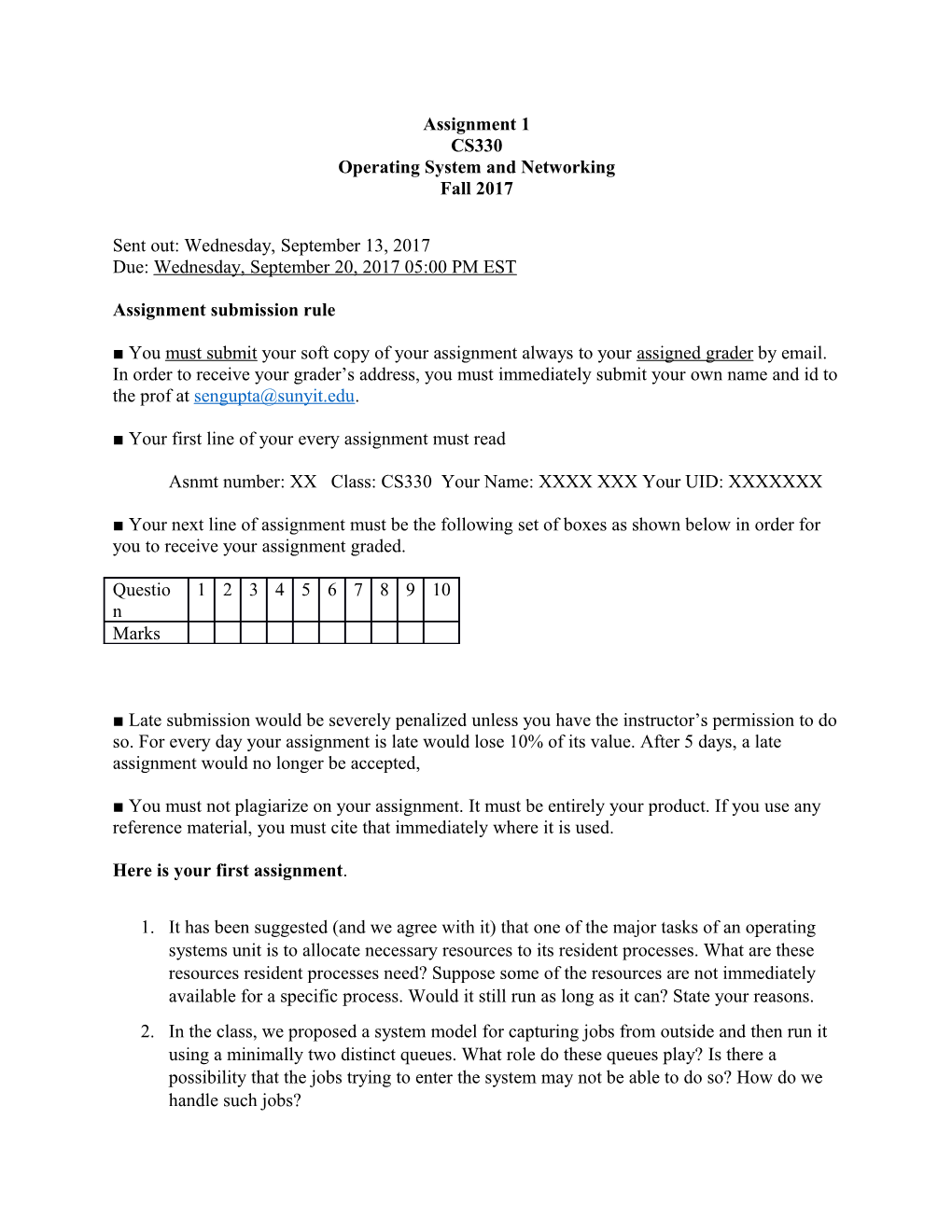Assignment 1
CS330
Operating System and Networking
Fall 2017
Sent out: Wednesday, September 13, 2017
Due: Wednesday, September 20, 2017 05:00 PM EST
Assignment submission rule
■ Youmust submityour soft copy of your assignment always to your assigned grader by email. In order to receive your grader’s address, you must immediately submit your own name and id to the prof at .
■ Your first line of your every assignment must read
Asnmt number: XX Class: CS330 Your Name: XXXX XXX Your UID: XXXXXXX
■ Your next line of assignment must be the following set of boxes as shown below in order for you to receive your assignment graded.
Question / 1 / 2 / 3 / 4 / 5 / 6 / 7 / 8 / 9 / 10Marks
■ Late submission would be severely penalized unless you have the instructor’s permission to do so. For every day your assignment is late would lose 10% of its value. After 5 days, a late assignment would no longer be accepted,
■ You must not plagiarize on your assignment. It must be entirely your product. If you use any reference material, you must cite that immediately where it is used.
Here is your first assignment.
- It has been suggested (and we agree with it) that one of the major tasks of an operating systems unit is to allocate necessary resources to its resident processes. What are these resources resident processes need? Suppose some of the resources are not immediately available for a specific process. Would it still run as long as it can? State your reasons.
- In the class, we proposed a system model for capturing jobs from outside and then run it using a minimally two distinct queues. What role do these queues play? Is there a possibility that the jobs trying to enter the system may not be able to do so? How do we handle such jobs?
- At some point, a job may become a process within its system. When does it happen? What happens to the job when it is anointed as a process? The job, when it becomes a process, has to receive a PCB data structure. What is it? What kind of information is contained in it?
- One of the tasks of an OS is to protect a job once it enters into the systems as a process. What are the things OS normally do to protect such processes which becomes vulnerable once they are in the system?
- One service a modern operating system does provide regularly toits user base is an “environment” different from the standard de facto one. How and what kind of environment could be generated by an OS?
- What is a system call? How is it different from the usual library calls or function calls an application might be inclined to make at its level? How does the separation of user space and kernel space relate to this?
- What is an interrupt system? How crucial is it for the CPU to receive an interrupt and act on it in real time? What are the set of actions CPU is supposed to carry out in response to a received interrupt?
- What is the difference between a trap and an interrupt? Can a process interrupt another process? How can we take care of receiving and acting on multiple interrupts while attending the first interrupt?
- What are the various I/O process model? Describe briefly a DMA model. What are its advantages over the other I/O models?
- What is the difference between real memory and virtual memory usages? Under what condition a virtual memory is a must? Under what condition it is better not to use it?
